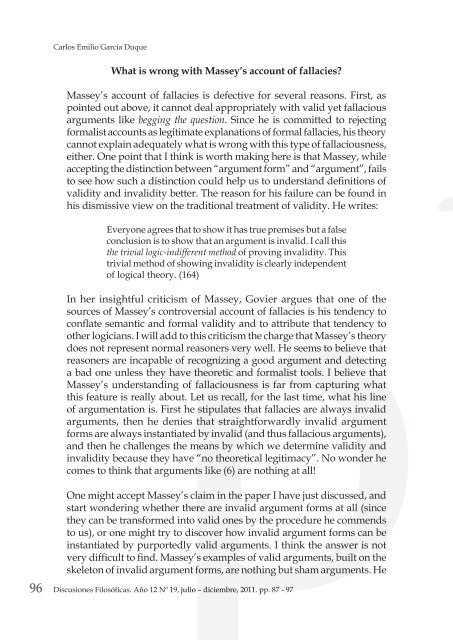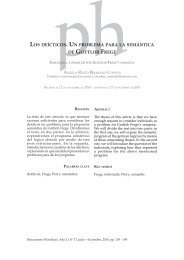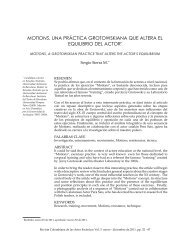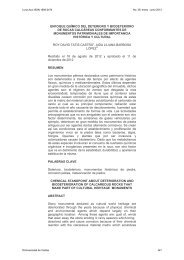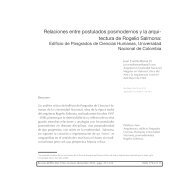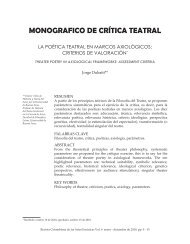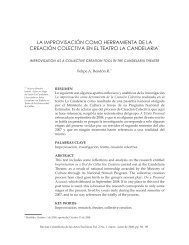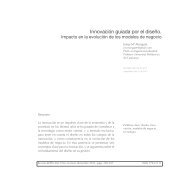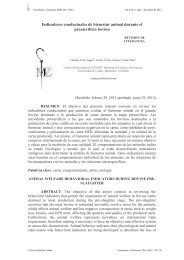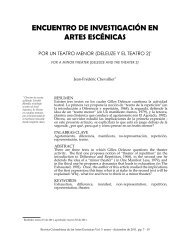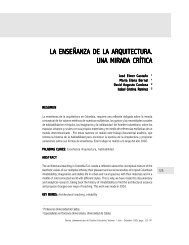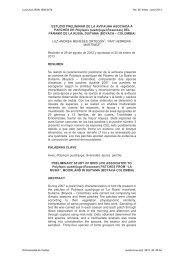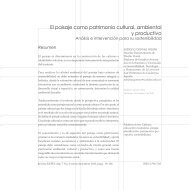Manizales - Colombia Año 12 No. 19 302 p. julio - diciembre 2011 ...
Manizales - Colombia Año 12 No. 19 302 p. julio - diciembre 2011 ...
Manizales - Colombia Año 12 No. 19 302 p. julio - diciembre 2011 ...
Create successful ePaper yourself
Turn your PDF publications into a flip-book with our unique Google optimized e-Paper software.
Carlos Emilio García Duque<br />
What is wrong with Massey’s account of fallacies?<br />
Massey’s account of fallacies is defective for several reasons. First, as<br />
pointed out above, it cannot deal appropriately with valid yet fallacious<br />
arguments like begging the question. Since he is committed to rejecting<br />
formalist accounts as legitimate explanations of formal fallacies, his theory<br />
cannot explain adequately what is wrong with this type of fallaciousness,<br />
either. One point that I think is worth making here is that Massey, while<br />
accepting the distinction between “argument form” and “argument”, fails<br />
to see how such a distinction could help us to understand definitions of<br />
validity and invalidity better. The reason for his failure can be found in<br />
his dismissive view on the traditional treatment of validity. He writes:<br />
Everyone agrees that to show it has true premises but a false<br />
conclusion is to show that an argument is invalid. I call this<br />
the trivial logic-indifferent method of proving invalidity. This<br />
trivial method of showing invalidity is clearly independent<br />
of logical theory. (164)<br />
In her insightful criticism of Massey, Govier argues that one of the<br />
sources of Massey’s controversial account of fallacies is his tendency to<br />
conflate semantic and formal validity and to attribute that tendency to<br />
other logicians. I will add to this criticism the charge that Massey’s theory<br />
does not represent normal reasoners very well. He seems to believe that<br />
reasoners are incapable of recognizing a good argument and detecting<br />
a bad one unless they have theoretic and formalist tools. I believe that<br />
Massey’s understanding of fallaciousness is far from capturing what<br />
this feature is really about. Let us recall, for the last time, what his line<br />
of argumentation is. First he stipulates that fallacies are always invalid<br />
arguments, then he denies that straightforwardly invalid argument<br />
forms are always instantiated by invalid (and thus fallacious arguments),<br />
and then he challenges the means by which we determine validity and<br />
invalidity because they have “no theoretical legitimacy”. <strong>No</strong> wonder he<br />
comes to think that arguments like (6) are nothing at all!<br />
One might accept Massey’s claim in the paper I have just discussed, and<br />
start wondering whether there are invalid argument forms at all (since<br />
they can be transformed into valid ones by the procedure he commends<br />
to us), or one might try to discover how invalid argument forms can be<br />
instantiated by purportedly valid arguments. I think the answer is not<br />
very difficult to find. Massey’s examples of valid arguments, built on the<br />
skeleton of invalid argument forms, are nothing but sham arguments. He<br />
96 Discusiones Filosóficas. <strong>Año</strong> <strong>12</strong> Nº <strong>19</strong>, <strong>julio</strong> – <strong>diciembre</strong>, <strong>2011</strong>. pp. 87 - 97


